Share Your Stories
YEAR OF NEWS :

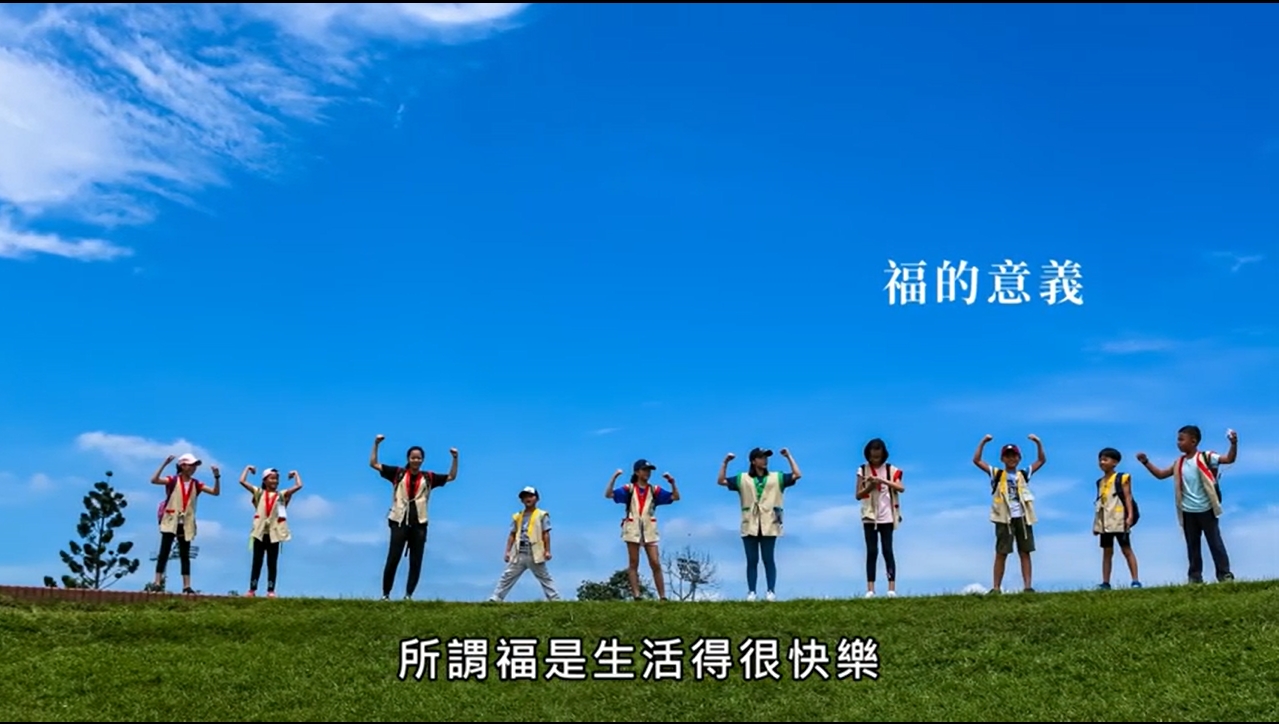
Wednesday, February 19, 2020
Blessings- What is it?
Ultimately it is the constant cleanliness, lightness and peacefulness of our inner world.
It is full of:
Happiness
Health
Friends
Compassion
Wisdom
Healthy body and mind, ease of body and mind, contentment of body and mind.
Contentment with our environment, with others.
No stress, no pressure. Full of thanksgiving and gratitude.
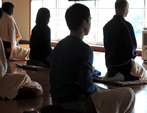
The conventional view of peacemaking is to focus on changing the environment to achieve peace. Such a view advocates the use of institutions, laws, economic structures, military power, etc., to create an environment in which peace can flourish. Buddhists do not oppose such a view, but stress the greater urgency of transforming the mind of the individual.
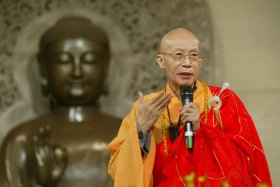
In many sutras the Buddha teaches lay practitioners to treat their parents, children, spouses, and colleagues with understanding and compassion. These sutras teach that each person has many roles in society and that each role dictates specific responsibilities and duties. Rather than putting blind faith in rituals and worship, the Buddha tells us that we should strive to mindfully undertake the responsibilities and duties of our normal lives. If everybody does so, the world will enjoy enduring peace. You can say that the Buddha was the first advocate of "engaged Buddhism."

To achieve social peace, Buddhism begins with a program of inner peace, believing that long-lasting peace derives from the ability of each person to calm his or her own mind and to temper actions controlled by the mind. Thus empowered, individuals can encourage those in their immediate sphere of influence to also understand the need for peace and to begin calming their minds. In such a widening circle of influence, more and more people will be included. Step by step, people throughout the world can be at peace with themselves and with others. Like a pebble thrown into a pond, causing expanding ripples to reach the far shore, a single person can positively influence many others toward peaceful modes of thinking and acting.

The reason I signed up for the gardening retreat was simple curiosity. I always thought that meditation meant sitting on a cushion until your legs are numb and your back is sore! How can you meditate while you are gardening? So I decided to find out!
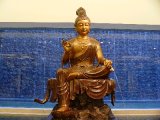
Now let us look at the third dualism: “neither increasing nor decreasing.” Your weight may increase by a few pounds, and you may think it is either good or bad. In our appearance-conscious society, where gaining weight has a bad name, many people try to live up to a conventional image of beauty by working away their fat. If it has no impact on health, what are a few pounds more or less? Every time l return from a trip, people tell me I have lost more weight. If this were true, I would have disappeared by now. This is an example of how increasing and decreasing are relative things in people’s mind.
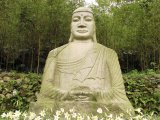
The word Buddha comes from Sanskrit, an ancient Indian language. It means enlightened or awakened: awakened not just oneself but also awakening others; awakening to the knowledge and truth of all things at all times. Thus, a Buddha is sometimes called an omniscient human being or a “fully enlightened one.”

The second dualism-"neither pure nor impure"-refers both to phenomena, and to judgments people make about phenomena. For example, you may choose not to brush your teeth, not to wash, not to change clothes, in which case you may look dirty and smell bad to others. On the other hand, you may clean up, shower, brush your teeth, and change your clothes. Then you will look clean to others. Either way, you are the same person. Some people appear clean most of the time and dirty some of the time; others look dirty most of the time and clean only some of the time. Furthermore, the criteria for cleanliness are not absolute. You may think you are clean while others judge you to be unclean. You may think you are unkempt, but another might find you attractive.
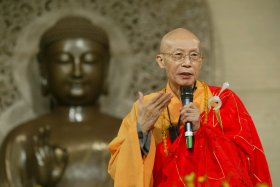
No. Orthodox Buddhism does not have the idea of a world-creator. The Buddha is an enlightened one among humans, and although he is capable of knowing all the truths in the world, he cannot change what has already occurred. And although the Buddha can help all sentient beings reach liberation, only those who make efforts can succeed. He is the best doctor to diagnose sentient beings’ suffering: anybody who takes his prescriptions will be delivered (released from adversity). But he cannot help those who are unwilling to take his medicine. He is the best guide: anyone who follows his guidelines will be liberated from the world’s sea of suffering. But he cannot help those who do not take his advice.

I told a woman whose son had died that the reality is that she had a son, and now he is gone. Her memories of him persist, but he is somewhere else. He may now even be someone else’s child. It would make things easier for her if she considered him her ex-son and move on. She said that it would be very difficult to think along that line. I told her she should nevertheless cultivate it as a method of practice.

Not clinging to either the negative or the positive is correct Buddha dharma. The reason we lose hope when faced with failure, and get overexcited when meeting success, is that we cannot let go of our self importance. Whatever we cannot let go of becomes an obstruction. Buddha dharma espouses being aware of the reality of the moment, then letting it go. A young person is not yet old; an old person is not yet dead. Work with what you have, and do not resist change. Understanding that every moment, your life indeed, the entire universe--is a dynamic process of birth, growth, decline, and death, will help to loosen your attachment to self. In turn, you will be hopeful in facing difficulties, composed when meeting success, and dedicated when fulfilling our obligations.
|